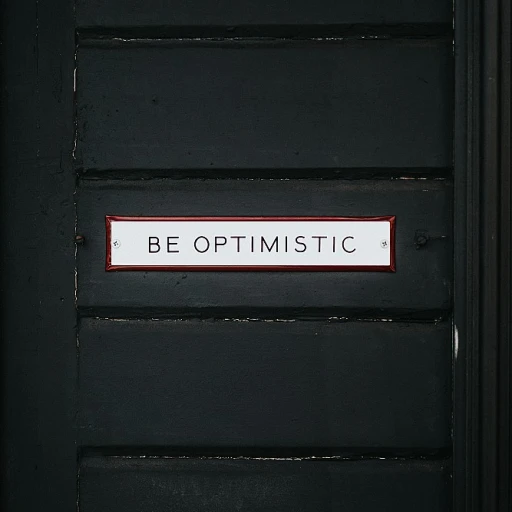Blockchain Basics: Defining the Technology Behind the Trend
Unpacking the Blocks: Understanding Blockchain's Foundations
Blockchain has swiftly risen from a tech buzzword to a strategic asset for companies across different industries. At its core, it's a ledger system, facilitating secure and transparent transactions. Imagine blocks of data, each containing a batch of transactions, linked to previous blocks via cryptography, thus creating a chain. This simplicity, however, belies its revolutionary potential.
Hashing the Details: How Blockchain Ensures Security and Trust
Every block in a blockchain includes a unique 'hash,' a cryptographic signature that safeguards the integrity of data within. Altering an individual record would require rehashing not just the affected block, but all following blocks, which is near-impossible and safeguards against tampering. Noteworthy here is the fact that this technology underpins renowned cryptocurrencies like Bitcoin and Ethereum. But blockchain's realm isn't confined to digital currencies. Its applications span various sectors, from managing legal agreements with smart contracts to tracking the provenance of products in supply chains.
Building Blocks of Efficiency: Blockchain's Advantage in Real-time Data Access
Blockchain technology excels in real-time data sharing within a network, enhancing efficiency for businesses. Unlike traditional databases that store data in centralized locations, blockchain disperses information across a distributed network. This enables multiple stakeholders to access up-to-the-minute data, a feature paramount in industries like finance and logistics where time is of the essence. Importantly, this distributed characteristic eradicates single points of failure, heightening the system's resilience against attacks or technical glitches.
The Confluence of Blockchain and Business: A Strategic Shift
Blockchain's influence on business operations is perceptible, with companies keen on leveraging the technology to streamline processes, reduce fraud, and foster transparency. Data security is a significant concern in the digital age, and blockchain offers a solution to safeguard sensitive information. Its inherent design prevents unauthorized access and facilitates a verifiable, immutable audit trail. This forms a cornerstone for strategic decision-making, as businesses can trust the data's integrity.
Why Blockchain Isn't Just a Trend: The Technology's Foundational Role in Modern Business
The ascent of blockchain isn't just because it's novel, it's because it answers the call for secure, democratized data management—a need felt acutely in today's digital-first business environment. From established enterprises to start-ups, adopting blockchain isn't about jumping on a bandwagon. It's about recognizing its foundational role as a driver of business operations, one that fortifies against data breaches and streamlines internal processes.
The Strategic Imperative of Blockchain for Businesses
Unlocking Business Value with Blockchain Integration
Blockchain is shaping up to be much more than just the technology underpinning cryptocurrencies like Bitcoin. Its unique capabilities to bolster transparency, efficiency, and security across various operations are well poised to offer tangible strategic advantages for businesses. But what makes blockchain a strategic imperative for enterprises today? Let's delve into the essence of blockchain's allure.
Re-envisioning Industry Models with Decentralized Data
The heart of blockchain lies in its decentralized architecture. Unlike traditional databases that store data in a centralized location, blockchain distributes information across a network of computers. This key feature not only enhances data security by reducing the risks associated with a single point of failure but also democratizes data access amongst stakeholders. Statista reports that 48% of businesses in the technology sector believe that data security is the topmost advantage of blockchain technology.
Revolutionizing the Trust Paradigm in Business Transactions
Every transaction on a blockchain is immutable and traceable, thereby forging an environment of trust. As each block in the chain is linked using cryptography, altering any piece of information would require network consensus. This fosters an unprecedented level of confidence and transparency between parties. Dr. W. Scott Stornetta and Stuart Haber, often credited as the originators of blockchain technology, emphasize the importance of such trust in their research. Businesses in sectors from finance to healthcare can capitalize on this reliability to streamline their operations and build credibility with their partners and customers.
Supporting Growth with Enhanced Efficiency
Efficiency is a boon to any business operation, and blockchain is a powerful tool to achieve it. Reducing the need for intermediaries in transaction verification processes, blockchain can expedite cross-border transactions which, as per a PwC report, can take days to settle through traditional means. They predict that blockchain technology 'could deliver a potential gross domestic product (GDP) benefit of $1.76 trillion by 2030.' This represents a considerable strategic incentive for businesses to integrate blockchain into their operations.
Driving Innovation through Smart Contracts
Smart contracts programmed on blockchains automate contractual obligations, minimizing the need for manual oversight and reducing the potential for disputes. These self-executing contracts with the terms directly written into code can revolutionize how agreements are established and executed across all industries. For instance, IBM Blockchain solutions are providing transformative opportunities for businesses to streamline their operations and reduce costs associated with contract management.
Insightful Use of Data in an Increasingly Digital World
In our digital era, leveraging data intelligently equates to competitive advantage. Blockchain's role as an immutable ledger can significantly decrease instances of fraud and error in data management. A case study involving the shipping giant Maersk, indicated that implementing a blockchain-based system could cut costs related to trade documentation by up to 15%, potentially saving billions of dollars in international shipping.
Blockchain's Strategic Synergy with Big Data and AI
Blockchain's ledger capabilities synchronize perfectly with big data analytics and artificial intelligence (AI), creating a synergistic trifecta that can provide businesses with robust insights and automated decision-making processes. According to Deloitte's 2021 blockchain survey, 86% of respondents stated that blockchain technology is broadly scalable and has achieved mainstream adoption within their industries. This indicates the considerable impact blockchain is set to have on business strategies.
Decoding Regulatory Compliance with Blockchain
Regulatory compliance is an ongoing challenge for many businesses. The transparency and traceability offered by blockchain can aid companies in meeting these requirements more effectively. Reports like those published by the Linux Foundation's Hyperledger Fabric indicate that blockchain platforms can be tailored to adhere to various regulatory standards, easing the compliance burden on businesses and facilitating more secure and lawful operations.
Conclusion: Embracing Blockchain as a Strategic Business Asset
Blockchain's potential extends deep into the strategic layers of an organization, enabling business leaders to rethink how they create value, operate, and compete in their respective domains. While the technology is still relatively young, its quick adoption rate signifies that blockchain is not just a fleeting trend but a cornerstone technology poised to redefine business strategies for years to come. With investment in blockchain expected to continue rising, forward-thinking businesses are moving quickly to harness this technology's strategic prowess.
Improving Supply Chain Visibility with Blockchain
From Farm to Shelf: Blockchain's Transparency Revolution
In our exploration of blockchain's power, improving supply chain management stands as a remarkable application. Traditionally, supply chains have been clouded by layers of ambiguity and inefficiency, but the integration of blockchain technology into these systems heralds a new era of transparency and traceability. From the individual farmer to the retail shelf, every transaction and product journey can now be recorded on a tamper-proof digital ledger. One notable example is from the food industry, where companies like IBM have leveraged their IBM blockchain to trace food origins, boosting consumer confidence and improving safety recalls.
Studies have shown that blockchain could reduce the costs of cross-border transactions by up to 3%, according to PwC. Furthermore, experts like Haber and Stornetta, whose foundational work underpins this data technology, have highlighted the potential for blockchains to not just secure data, but also to streamline operational processes. Companies adopting blockchain in their supply chains have witnessed reduced fraud, counterfeiting, and waste, as substantiated in multiple Harvard Business Review case analyses.
Case Study: Leveraging Hyperledger for Real-Time Traceability
Hyperledger Fabric, an open source blockchain framework hosted by the Linux Foundation, has seen widespread adoption among businesses seeking greater supply chain visibility. In one case study, a global shipping company utilized Hyperledger to track container shipments, leading to a significant decrease in documentation errors and time spent on exchanges. It's a practical example of how this technology can transform operations from reactive track-and-trace to a proactive and strategic asset.
For a deeper look into the mechanics behind enhancing supply chain visibility using blockchain, consider the seamlessness experienced when integrating smart contracts—automated agreements that execute upon meeting predetermined conditions. This innovation has profound implications for supplier payments, order fulfillment, and inventory management, aspects that are further developed in other sections of our series.
Blockchain's Value in Combatting Counterfeits and Improving Compliance
The battle against counterfeit goods is one where blockchain can shine. A blockchain's immutable record-keeping capabilities mean that each product can have a unique, unalterable history that's verifiable at any point in the supply chain. This is not only vital for luxury goods but also for sectors like pharmaceuticals, where patient safety can hinge on the authenticity of products. For organizations grappling with the complexities of regulatory compliance, blockchain's ability to provide a single source of truth simplifies this challenge.
While some may contemplate the complexity of blockchain implementation, the International Data Corporation (IDC) predicts that by 2023, 30% of manufacturers and retailers globally will implement blockchain for supply chain management. The moves by giants like Amazon, with their Amazon Managed Blockchain, confirms the anticipated directional flow towards blockchain-based solutions.
Blockchain in Action: Real-World Results and Metrics
Bringing in tangible figures, supply chains enhanced with blockchain have reported increases in efficiency by up to 70%, according to industry reports. With public and private blockchains, companies are seeing fewer points of failure, decreased costs from reduced paperwork and better control over outsourced contractual obligations. For example, Walmart's use of blockchain to track the provenance of food products slashed their tracking time from days to mere seconds—a transformation that has set a new standard in the industry.
Conclusively, blockchain in supply chain management isn't just about the transition to digital; it's about architecting a fundamentally more transparent, reliable, and cost-effective network. As businesses adapt to this rising need, we delve into the deep-seated protocols and best practices that can assure a successful integration in forthcoming sections of this article series.
Redesigning Data Management: Blockchain's Role in Secure Transactions
The Backbone of Trustworthy Transactions
Picture a world where data integrity is no longer a concern, where every piece of information can be verified and trusted without a shred of doubt. This is the promise of blockchain technology, a system designed to bring about a transformation in how companies manage data and conduct transactions. But blockchain isn't just any database; it's a revolutionary approach to digital trust, acting as a ledger that's simultaneously secure and transparent, distributed across all participants in the network.
David Chaum, a renowned cryptographer, might not have envisioned the current impact of blockchain when he initiated the concept of secure digital cash decades ago. Yet, today, his work underpins some of the most transformative advancements in transactional technology.
Blockchain's unique feature is its blocks, which contain a timestamp and a link to the previous block, secured by a cryptographic hash. This creates an unalterable chain of records that safeguards the integrity of transactional data, making it a perfect match for industries that rely on trustworthy transactions.
In-Depth Security for Sensitive Transactions
When it comes to sensitive transactions, such as those in finance or legal industries, security is paramount. Traditional systems often show single points of failure, but blockchain technology stands out with its distributed ledger that lacks such a central point of vulnerability. This is particularly important when considering the threat that cybercrime poses to transactional data integrity.
Studies suggest that the immutable and tamper-evident nature of blockchain can significantly reduce fraud and errors, providing peace of mind for companies and consumers alike. In this realm, IBM Blockchain, for instance, is at the forefront, delivering blockchain solutions that enhance the security and efficiency of these transactions.
Increasing Efficiency with Decentralized Transactions
The operational upheaval extentuated by blockchain is not limited to security enhancements. By enabling decentralized transactions, blockchain removes the need for intermediaries, often streamlining the process and reducing associated costs. It's a move towards greater efficiency—removing bottlenecks and reducing time delays.
As per a PwC report, blockchain technology has the power to create new opportunities for process improvement by facilitating more swift and secure transactions across a wide range of business operations. This could translate into superior competitive advantages for early adopters of the technology.
Leveraging Blockchain for Enhanced Regulatory Compliance
Regulatory compliance takes center stage in sectors like healthcare, finance, and law. Blockchain offers an unprecedented tool to ensure compliance through its transparent and unalterable ledger. For example, by supporting Internet Explorer with blockchain's capabilities, companies can streamline and securely manage customer data, complying with regulations like GDPR or HIPAA.
Experts such as Haber and Stornetta, who contributed to the earliest foundations of blockchain, have inspired subsequent advancements which demonstrate the technology's relevance in meeting regulatory standards; creating a 'chain of custodianship' that could prove vital in audit trails.
A Shift Towards Integrated Transaction Platforms
With blockchain, the digital transformation of business is not just limited to enhanced security and efficiency. It allows for the integration of various aspects of the digital eco-system into a single, unified transaction platform. The Ethereum blockchain, known for smart contracts, is an example of a platform that not only manages digital currency transactions but also executes contract terms automatically when conditions are met.
This integration of features and capabilities showcases blockchain's potential to streamline business operations comprehensively. As the digital age evolves, companies that leverage blockchain platforms effectively are likely to gain a significant edge in operational agility and strategic positioning.
Enhancing Accountability with Transparent Transactions
Accountability is a cornerstone of reputable business practices. Blockchain's transparent nature ensures every transaction is traceable and verifiable by all network participants. This level of transparency fosters trust among users, as it allows for the complete visibility of transaction histories. For instance, in supply chain management, blockchain enables all stakeholders to track the provenance of goods, reducing the risk of counterfeit products and ensuring the integrity of the supply chain.
An example of this application is seen in the IBM Blockchain Platform, which has been leveraged by companies to improve traceability from production to delivery, thereby building trust with consumers and ensuring authenticity of their products.
Conclusion
As businesses stride forward in the digital arena, blockchain emerges as a foundational technology for secure, efficient, and transparent transactions. It represents more than just a tool for digital currencies like Bitcoin; it's a broader technological innovation that reshapes how companies manage data, validate transactions, and uphold accountability. By staying informed and judiciously applying blockchain, businesses have an incredible opportunity to redesign data management and secure their operational futures.
Energizing Smart Contracts: Automating Processes with Blockchain
Streamlining Operations with the Power of Blockchain Automation
Smart contracts are the engine rooms of the blockchain, where technology meets the legal framework, creating a robust environment for automating standard business processes. Picture a world where contractual obligations are executed with the precision of a Swiss watch, without the direct oversight of any particular party. This autonomous feature of blockchain doesn't just speed things up; it virtually eliminates the margin for human error.
The Mechanics and Advantages of Blockchain-Based Agreements
These digital contracts are self-executing protocols that run on blockchain networks. They automatically verify, enforce, or trigger actions on occurrence of pre-agreed events, much like a vending machine dispensing snacks once the correct change is slotted in. Blockchain ensures that all smart contract transactions are transparent, traceable, and irreversible, forming the bedrock of trust in a sometimes trust-averse digital ecosystem. According to a PwC report, implementing smart contracts can lead to a 30% reduction in costs by removing intermediaries and decreasing transaction times.
Success Stories: Real-World Smart Contract Implementations
Take, for example, Ethereum, the poster child for decentralized applications, where numerous enterprises have created efficient and secure digital agreements. In sectors ranging from real estate to intellectual property rights, Ethereum's platform demonstrates smart contracts' versatility in ensuring compliance and simplifying complexities.
In the realm of supply chain, blockchain's incorruptible ledger combined with automated agreements has seen companies like IBM revolutionize tracking and verification processes. Through IBM's Blockchain platform, businesses can automatically validate transactions and add them to the ledger, streamlining everything from payment settlements to quality assurance.
Customization Is Key: Adapting Blockchain Contracts for Diverse Business Needs
Different business operations may require varying levels of control and privacy in their smart contracts. This need for customization has led to the birth of platforms like Hyperledger Fabric, an open-source blockchain framework that allows the development of smart contracts, also known as chaincode. This flexibility empowers companies to shape their blockchain solutions to suit specific operational needs, increasing efficiency and security in their business processes.
Addressing the Skeptics: Ensuring Smart Contracts Are Foolproof
Despite their benefits, smart contracts face skepticism, mostly pertaining to security concerns and legal recognition. However, as technology evolves, coders and legislators are working in tandem to overcome these hurdles. Security protocols are continuously being enhanced to protect against potential breaches, and a growing number of jurisdictions are beginning to recognize digital contracts as legally binding, thereby fortifying their position in the business landscape.
Digital contracts are more than a novelty; they represent the fusion of legal foresight and technical innovation that are expected to become a norm in mainstream business operations.
Custom Blockchain Applications: When to Use Public versus Private Networks
Deciphering the Choice Between Open and Controlled Digital Ledgers
Blockchain has emerged as a groundbreaking technology, fundamentally changing how we manage digital transactions. It offers an immutable, transparent, and secure way to record and transfer data. But when venturing into blockchain applications, a strategic decision looms: choosing between employing a public blockchain or opting for a private network.
Public Blockchain Networks: Democratizing Data Transactions
Public blockchains like Bitcoin and Ethereum have popularized the concept of an open decentralized ledger where anyone can participate. This transparency ensures that transactions are openly verifiable. Ethereum, in particular, has fostered innovation in digital assets with its smart contract capabilities. Yet, with great openness comes challenges, like scalability issues and slower transaction speeds due to the proof of work (PoW) consensus mechanism.
Private Blockchains: Ensuring Confidentiality and Control
Private blockchains offer controlled access, making them suitable for businesses prioritizing confidentiality and efficiency. Solutions such as Hyperledger Fabric and IBM's enterprise-focused platforms provide the collaborative benefits of blockchain, minus the public exposure. They employ permissioned networks with faster transaction validation processes which, unlike proof of stake (PoS), do not require extensive computational power.
Strategic Application Criteria: Aligning Business Needs with Blockchain Types
To strategically align with business objectives, one must consider criteria such as the necessity for privacy, the type of transactions, and the scale of operation. For instance, digital currency enterprises lean toward public networks to tap into the wider cryptocurrency community. Conversely, supply chain management, which often handles sensitive information, might be better served by a private blockchain's tighter security protocols.
Case Study: Healthcare on Blockchain
A poignant example is the healthcare sector. In dealing with patients' private information, hospitals may implement private networks to securely store and share data while abiding by regulatory compliances like the U.S. Health Insurance Portability and Accountability Act (HIPAA). Conversely, public blockchains can facilitate areas such as medical research, where data sharing can be beneficial on a larger scale.
Smart Contracts: Choosing the Right Environment for Execution
The execution environment for smart contracts also plays a role in this strategic decision. Use cases demanding high-level security, such as digital identity verification, could be more effectively managed on a private blockchain where user access is restricted. On the other hand, for applications like digital art NFTs, the broader access of a public blockchain could amplify an artist's exposure and potential market.
Conclusion: An Informed Decision is Key to Leveraging Blockchain Strategically
Understanding the differences and applications of public versus private blockchains is crucial for businesses looking to integrate this technology into their operations. As noted throughout our exploration of the blockchain landscape, from supply chain advancements to the role of smart contracts, the decision must be informed by a comprehensive understanding of the company's strategy, operational needs, and the specific benefits each type of blockchain offers.
Handling Challenges: Overcoming Blockchain Adoption Barriers
Identifying and Navigating Blockchain's Roadblocks
Businesses are eagerly exploring the advantages of blockchain technology, from its ability to streamline operations to enhancing data security. However, embracing blockchain comes with its set of challenges. One such hurdle is the steep learning curve associated with understanding blockchain's intricacies. Unlike traditional databases, blockchain introduces a new paradigm – a decentralized and distributed ledger that requires a fundamental shift in data management and process alignment. The education of personnel, therefore, becomes critical to avoid mishandling and inefficiency on a grand scale.
Regulatory Uncertainties and Compliance Issues
The patchwork of regulations governing digital assets and blockchain technology creates an uncertain compliance environment for many enterprises. The lack of clear guidance on cryptocurrency use and smart contract enforceability has businesses walking a tightrope, seeking to innovate while remaining within legal boundaries. Expert insights reveal that close collaboration with legal teams and keeping abreast of evolving regulations are key to mitigating this risk.
Technical Integration and Interoperability Concerns
Blockchain's integration with existing systems presents another significant barrier. Businesses must ensure that their blockchain network can communicate with legacy systems and other blockchains. This need for interoperability and technical compatibleness is where IT professionals play an invaluable role in ensuring a smooth transition without disrupting ongoing operations. Specialist blockchain integration consultants are often called upon to bridge gaps in technical expertise.
Scalability and Performance Considerations
While the concept of an immutable ledger is appealing, it's not without performance concerns. Blockchain networks, particularly those that rely on proof-of-work mechanisms, can struggle with scalability, affecting transaction speeds and overall network performance. Adjusting to this limitation requires strategic planning to either choose more efficient consensus mechanisms, like proof-of-stake, or to adapt business operations accordingly.
Addressing Privacy and Security Implications
Despite the enhanced security features of blockchain, its immutable nature raises privacy concerns, especially in light of the General Data Protection Regulation (GDPR) and other privacy laws that include the right to be forgotten. Furthermore, while blockchain is touted for its security, it's not impermeable. Security measures must be robust to shield against risks such as the 51% attack, where an entity takes control of the majority of the network's mining hash rate. Expert advice and advanced security solutions are indispensable here to protect against such vulnerabilities.
The Cost-Benefit Analysis of Blockchain Integration
Implementing blockchain technology can be a costly venture, with substantial investments needed for system upgrades, training, and ongoing maintenance. Organizations are required to perform a meticulous cost-benefit analysis to gauge the financial viability of blockchain integration. Studies and reports often highlight not only the upfront costs but also the potential for long-term savings and efficiency gains. Yet, the upfront expenditure remains a barrier for many smaller enterprises.
Corporate Culture and Change Resistance
Finally, an obstacle often overlooked is the resistance to change within the corporate culture. Blockchain implementation is as much about technology as it is about people. Changing established processes and internal systems can meet with pushback from staff accustomed to the status quo. Overcoming this resistance involves clear communication, education, and often, a gradual approach to change management.
The Future of Blockchain in Business: Potential and Predictions
Dissecting Blockchain's Trajectory in Business Landscapes
As companies venture deeper into the digital era, the drumbeat around blockchain grows ever more resonant. This technology, once exclusively married to the concept of Bitcoin, has blossomed to become a cornerstone in the architecture of 21st-century business operations. At its core, blockchain’s promise lies in its inherent abilities to decentralize, secure, and streamline the networks sustaining our business infrastructures, prompting experts like W. Scott Stornetta and Stuart Haber, whose early work underpins this digital ledger technology (DLT), to envision a future where transactions become seamlessly and transparently integrated into a myriad of economic sectors.
Untapped Horizons: Innovative Blockchain Utilizations
Diverse industries are harnessing the power of blockchain technology to reinvent their supply chains, refine data management, and implement smart contracts that autonomously enforce and execute terms. But blockchain's potential extends beyond these now familiar use cases. Emerging applications range from securing intellectual property rights through NFTs to improving identity verification processes—an essential evolution in our cyber-centric world. Moreover, sectors such as healthcare are exploring blockchain to manage sensitive patient data, demonstrating its capability to support complex compliance requirements and facilitate swift yet secure data access.
Predicting Blockchain's Integration into Future Business Models
The trajectory of blockchain implementation paints a bullish picture for its role in future business models. Predictive analytics, coupled with blockchain data, are setting the stage for more informed and accurate forecasting methods. The synthesis of blockchain with Internet of Things (IoT) devices stands to create a new paradigm in real-time data analysis and management. Meanwhile, experts anticipate that smart contracts will evolve to automate not only simple transactions but also complex contractual negotiations and execution across a wide swath of industries.
Navigating the Seas of Speculation: Recognizing Realistic Blockchain Advancements
While buzzwords fly thick and fast, it's crucial to separate the chaff from the wheat. Trends suggest that blockchain networks may soon benefit significantly from advancements in consensus mechanisms like proof of stake (PoS), which present a more energy-efficient alternative to proof of work (PoW). The United States and other countries are increasingly looking to blockchain for improvements in public service delivery and election integrity. Emblematic of this trend, companies like IBM and Amazon are investing in managed blockchain services (e.g., IBM Blockchain Platform, Amazon Managed Blockchain) to facilitate adoption among businesses of varying scales.
Shaping a Blockchain-Enriched Future: Strategic Considerations and Plausible Scenarios
The forward march of blockchain adoption necessitates a strategic approach by businesses. The decision to implement a public, private, or hybrid blockchain model should be informed by a clear-eyed assessment of organizational needs and the unique value proposition offered by blockchain solutions. As peer-to-peer transactions and the tokenization of assets become mainstream, digital currency could see a vast uptick in acceptance, posing transformative implications for the financial sector.
Amid these possibilities, enterprises are pondering digital strategy revamps that incorporate blockchain as a bedrock principle. Though the landscape is fertile with potential, success hinges on meticulous planning, adaptability, and a harmonized blend of innovation and operational acumen. Companies might soon find that blockchain becomes less of an option and more of an operational imperative, fueling insightful forecasts and providing a competitive edge in tomorrow's business arenas.














